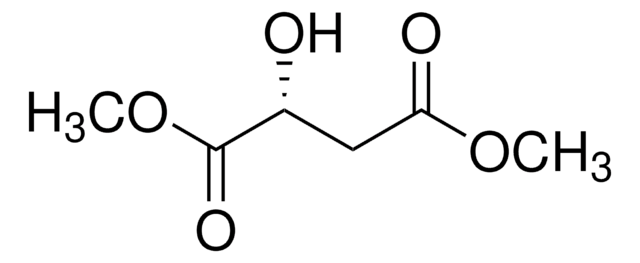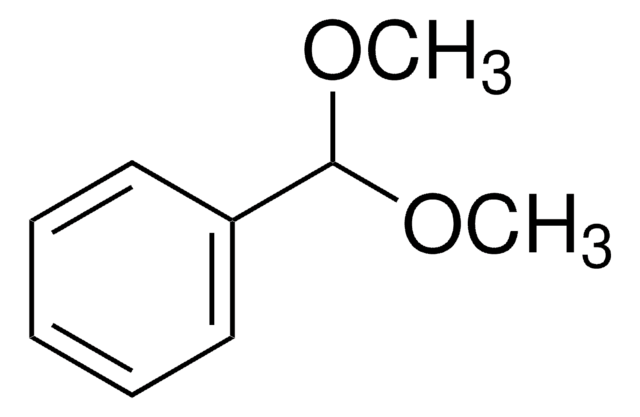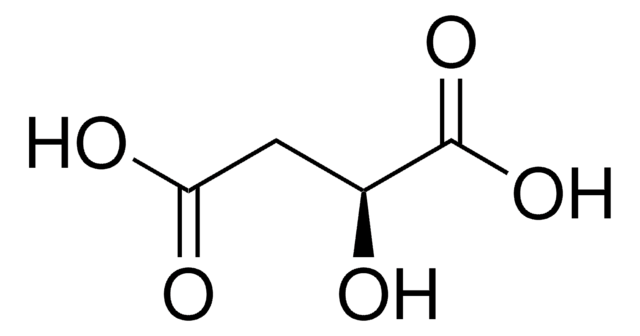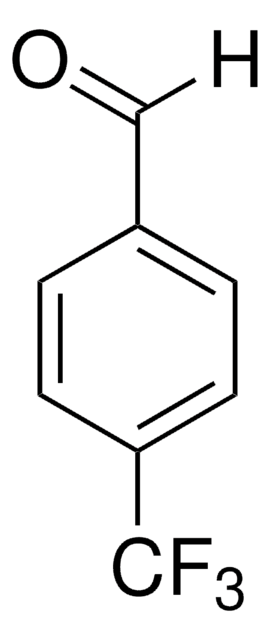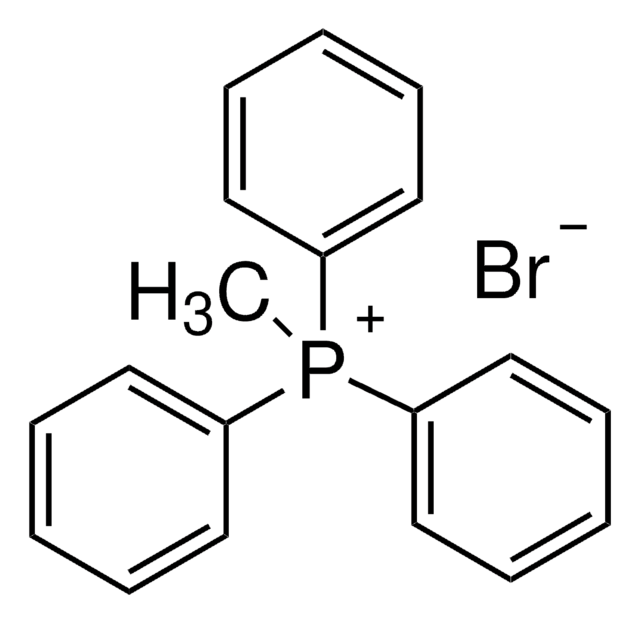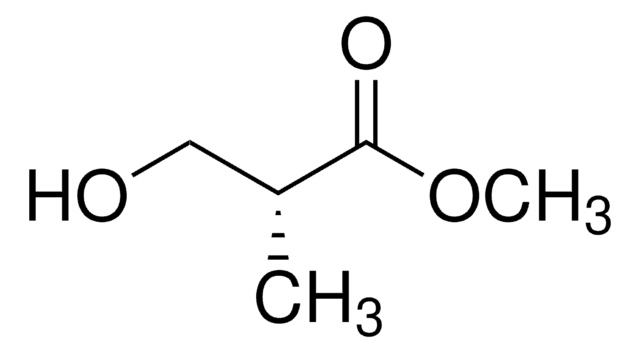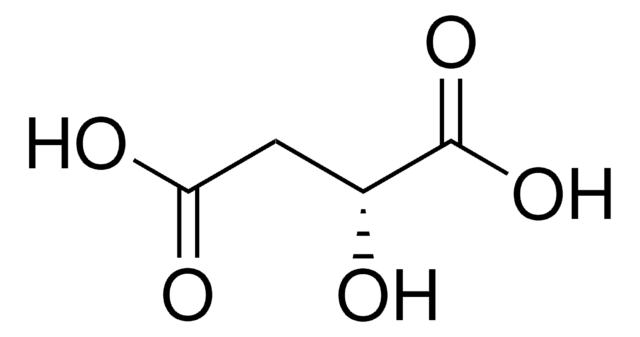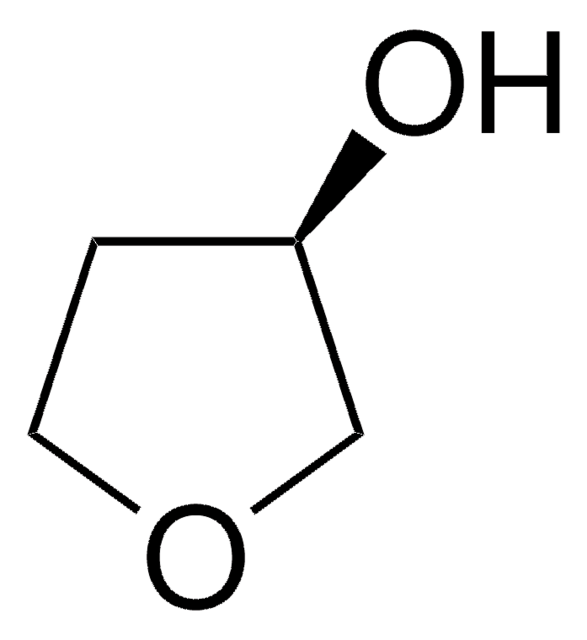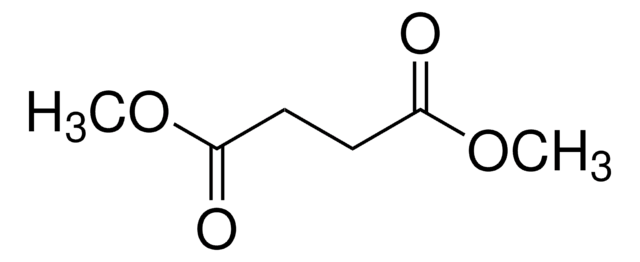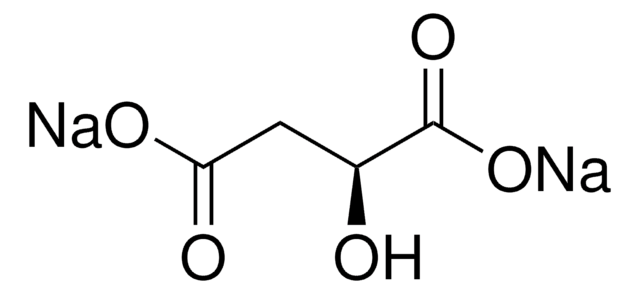374318
Dimethyl (S)-(−)-malate
98%
Synonym(s):
Dimethyl (S)-2-hydroxysuccinate, Dimethyl L-malate
Sign Into View Organizational & Contract Pricing
All Photos(1)
About This Item
Linear Formula:
CH3O2CCH2CH(OH)CO2CH3
CAS Number:
Molecular Weight:
162.14
Beilstein:
1724363
EC Number:
MDL number:
UNSPSC Code:
12352108
PubChem Substance ID:
NACRES:
NA.22
Recommended Products
Quality Level
Assay
98%
optical activity
[α]20/D −6.5°, neat
refractive index
n20/D 1.435 (lit.)
density
1.223 g/mL at 25 °C (lit.)
functional group
ester
hydroxyl
storage temp.
2-8°C
SMILES string
COC(=O)C[C@H](O)C(=O)OC
InChI
1S/C6H10O5/c1-10-5(8)3-4(7)6(9)11-2/h4,7H,3H2,1-2H3/t4-/m0/s1
InChI key
YSEKNCXYRGKTBJ-BYPYZUCNSA-N
Application
Dimethyl (S)-(-)-malate may be used as a starting material to synthesize (-)-tulipalin B. The selective reduction of its ester group to alcohol can be accomplished using borane-dimethyl sulfide complex (BMS) in the presence of sodium tetrahydroborate.
This chiral synthon has been used to prepare cytochrome P450 metabolites of arachidonic acid, and cyclic sulfolanes with HIV-1 protease inhibition potential.
Signal Word
Danger
Hazard Statements
Precautionary Statements
Hazard Classifications
Eye Dam. 1 - Flam. Liq. 3 - Skin Sens. 1
Storage Class Code
3 - Flammable liquids
WGK
WGK 3
Flash Point(F)
131.0 °F
Flash Point(C)
55 °C
Personal Protective Equipment
dust mask type N95 (US), Eyeshields, Gloves
Choose from one of the most recent versions:
Already Own This Product?
Find documentation for the products that you have recently purchased in the Document Library.
Customers Also Viewed
Cyclic sulfolanes as novel and high affinity P2 ligands for HIV-1 protease inhibitors.
A K Ghosh et al.
Journal of medicinal chemistry, 36(7), 924-927 (1993-04-02)
Use of enzymic hydrolysis of dimethyl malates for a short synthesis of tulipalin B and of its enantiomer.
Papageorgiou C and Benezra C.
The Journal of Organic Chemistry, 50(7), 1144-1145 (1985)
Falck, J.R. et al.
Tetrahedron Letters, 33, 4893-4893 (1992)
Combination of borane-dimethyl sulfide complex with catalytic sodium tetrahydroborate as a selective reducing agent for a-hydroxy esters. Versatile chiral building block from (s)-(-)-malic acid.
Saito S, et al.
Chemistry Letters (Jpn), 13(8), 1389-1392 (1984)
Rajesh Gupta et al.
The Journal of biological chemistry, 293(47), 18086-18098 (2018-09-20)
Secreted proteins are important metabolic regulators in both healthy and disease states. Here, we sought to investigate the mechanism by which the secreted protein complement 1q-like-3 (C1ql3) regulates insulin secretion from pancreatic β-cells, a key process affecting whole-body glucose metabolism.
Our team of scientists has experience in all areas of research including Life Science, Material Science, Chemical Synthesis, Chromatography, Analytical and many others.
Contact Technical Service

